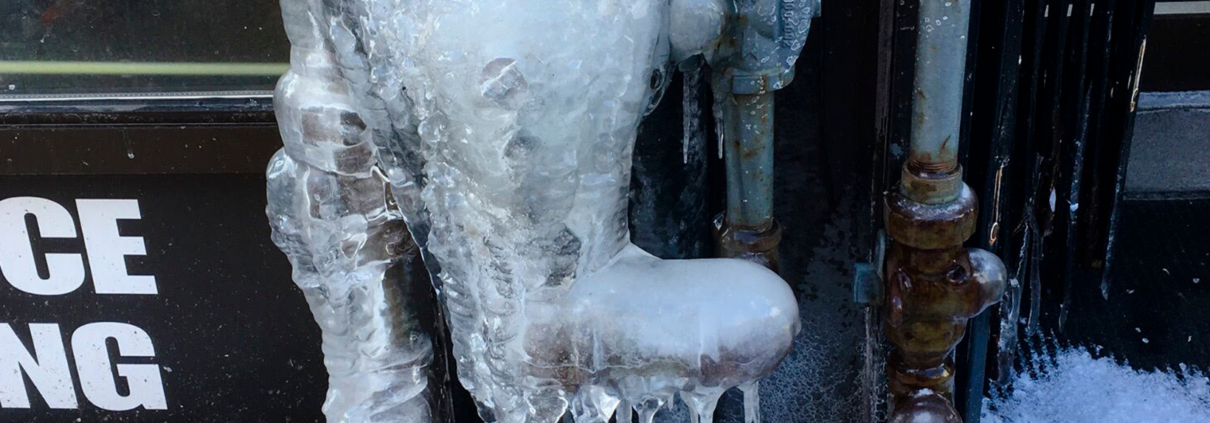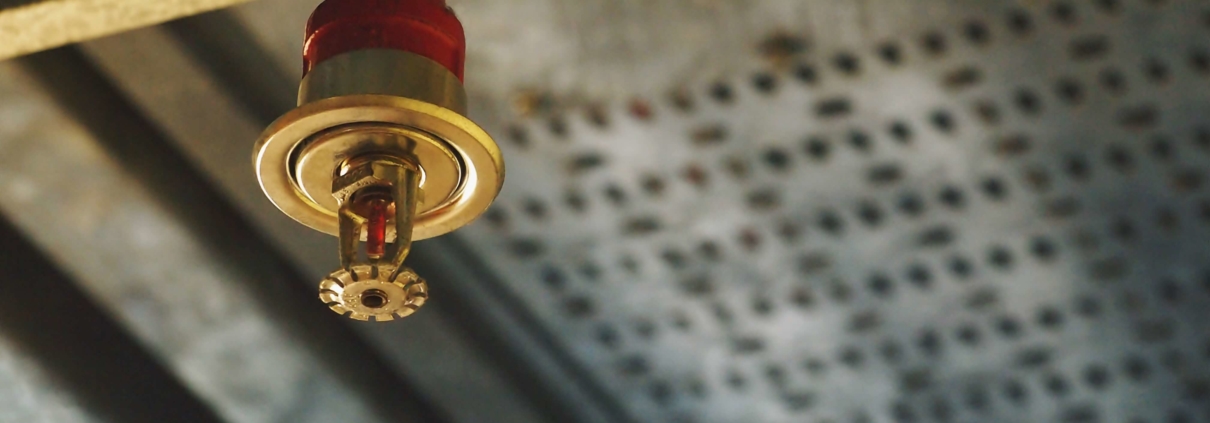Tag Archive for: safety
Is it time to go back to school already?! Not quite… you still have a few more months of freedom! However, it’s never too early to start thinking about fire protection precautions as you head back to the classroom. The NFPA states that 4,980 structure fires occurred in educational buildings each year from 2011 to 2015. Fire safety training and implementation are essential in schools to ensure the safety of your students, faculty, and staff.
In a study performed by the NFPA, they found:
- Most school fires occur in the daytime—especially around lunch.
- About 41% of school fires are started intentionally
- Around one-third of these fires occur in school bathrooms
- In preschools, about two-thirds of fires occur between 6 am and 3 pm
In an effort to help get those fire safety wheels turning and mitigate these school fire risks, we’ve put together a few tips for your educational building’s fire safety.
Fire Protection Practices
Office Protocols and Procedures
First and foremost, your faculty and staff must be familiar with fire evacuation protocols and fire safety training. Fire emergencies don’t stop because your fire safety administrator is out sick or on vacation. Therefore, you must ensure all employees are well-equipped to handle an emergency. Be sure your school officials and faculty are familiar with the chain of command in order to mitigate commotion during an emergency.
Fire Evacuation Plans
Every student is excited for a fire drill because that typically means cutting the math or history lesson short! As exciting as they can be for your students, they are also essential to your fire safety success as a school.
Fire drills get more complicated with larger buildings, changing class schedules, and changing faculty members. Therefore, students and faculty should be made aware of the proper routes to safety regardless of where they are in the building. These fire evacuation drills should be planned monthly at various times in the day to provide training on the best route to safety for everyone in the building.
Fire Safety Training
You can find fire training courses, webinars, conferences, videos, and events at the NFPA or with your local fire department. These resources can be extremely useful for students at the elementary level, as building foundational knowledge for fire safety is important at this age. During this training, students will receive a greater understanding and knowledge of fire hazards and fire safety protocols.
Campus safety for those not-so-responsible college students:
According to Fire Science, firefighters respond to about 3,810 college fires each year. The large majority of these fires are due to kitchen fires. At the university level, it is important you provide four types of fire safety training: on-campus fire safety, campus lab fire safety, off-campus fire safety, and a general overview of college fire precautions.
On-Campus Fire Safety
Be sure your students know a few key fire safety tips when they reside on campus or are utilizing your facilities. First and foremost, cook only in designated areas––we all know what a cooking mishap with a hot plate in a college dorm can turn into! Additionally, it’s important that your students understand cooking areas should be kept clean, free of clutter and grease, and always attending to anything dealing with fire or heat in the kitchen. These among many additional fire safety tips are essential to teach your first-time cooks in college dorms!
Campus Lab Fire Safety
The campus lab can be an extremely fun place to experiment and study all that science has to offer. It can, however, be dangerous if fire and chemicals are involved. Therefore, it is essential that students understand the danger of a potential fire in the lab. Be sure students know to never leave lab experiments or pressure vessels unattended. They should also know to keep flammable gases and chemicals away from heat. You don’t want their science experiment to go up in flames!
Off-Campus Fire Safety
As your students begin to move off-campus and into apartment buildings and homes, it’s important that they are prepared for fire off-campus as well. It can be helpful to train students on what to look for as they look to move away. They should know to look for working smoke alarms in every room, as well as ensuring the building has a well-maintained sprinkler system. Students should also be prepared to ask their building manager if building heating and fire prevention systems have been checked annually by fire officials.
General College Fire Precautions
Lastly, there is some general knowledge that can help college students navigate the world of fire safety. First and foremost, they should identify possible exits and evacuation routes as soon as they walk into a building. They should also identify the locations of fire alarms and the best way to use them. Lastly, students should know that fire equipment that has been vandalized must be reported to campus security.
At VFS, we take fire safety seriously and our team of experts is ready to assist you in all your fire safety needs. From design and build to testing and maintenance, we’re with you every step of the way. Our goal is to ensure your students, faculty, and staff remain safe from harm, which is why we implement top-of-the-line fire safety equipment into every building we work with.
At VFS one of our core values is to remain transparent with our clients. In an effort to live by this value, we want to give you a look inside the early life of our CEO, Randy Nelson. We sat down with Randy to see what most people may not know about his upbringing. Get to know our CEO, Randy Nelson…
Q: What are a few things people don’t know about your upbringing?
A: A lot of people know my story, I don’t hide much. A few things that might surprise some people…
- I grew up on a small farm in Minnesota. Two older sisters and 3 younger brothers, 6 kids total. My father worked the farm and was a full-time maintenance man at the local Municipal Airport (for 35 years). My mother was a stay at home mom until she took up real estate once all the kids were out of grade school. We were by definition, poor… but I didn’t know it at the time.
- Farm life was great but hard work. Twelve-hour days were not uncommon. The whole family pitched in and we did our ‘chores’ without the thought of getting paid. This instilled a work ethic and an appreciation of the team concept that I have to this day.
- We were primarily a cattle farm, we also grew corn and soybeans. One of my more vivid memories of the farm was helping with the ‘delivery’ of calves in the wintertime (the usual time for the cows to calve). Sometimes my father would still be at work and I had to do it myself. An unpleasant, messy, and sobering thing to do for a teenager at age 14, but necessary.
- Courage has always been a ‘core value’ for me, both within myself and what I like to see in others. Throughout my life, I have put myself in situations to help conquer fears. In grade school, I was petrified to speak in front of groups, so in the 7th grade, I joined the Competitive Speaking Team in High School. Three years later, as a freshman, I became the first person in my high school to go to the State Championships of Competitive Speaking.
- As graduating from high school approached, I was contemplating my future. I thought farm life was very respectable and a great way to raise a family… Plan A. I told my father that I wanted to be a farmer and that was one of the very few times I heard him use the ‘F’ word, he was not supportive of Plan A. He said, ‘You are going to get an education and be able to provide for your family better than I did’. Time for Plan B, I went to college and got a degree in Engineering.
The fire and life safety industry defines Special Hazards projects as those that require a fire protection system other than the traditional wet or dry system. This can include flammable or combustible solids or liquids such as:
- Aerosols
- Solvents
- Corrosives
- Pyroxylin Plastics
- Gases
- Cryogenic Fluids
From a fire protection standpoint, Special Hazards environments provide a unique set of challenges. These types of fires can spread rapidly in multiple directions even when there is a fire protection system in place. If you don’t have the appropriate fire protection system design and installation, a Special Hazards fire may not be controlled.

At VFS, our experience in Special Hazards projects dates back to the beginning of our company over 20 years ago. We understand that these projects are unique in the fire protection industry and VFS is one of the few resources in the country qualified to handle these projects nationwide.
VFS takes the time to understand the type of hazards at your facility, and designs and installs the appropriate fire protection system for that type of hazard. It is critical to design and install the proper system for each application and with our in-house Design-Build services, we are able to apply our expertise to all of the systems that can be used in high hazard environments including:
- Foam Systems
- Suppression Systems (such as FM200, Inergen, CO2, Novec)
- Detection Systems (Flame Detection, Spark Detection, Gas Detection)
A key element of the Special Hazard fire protection system is the integration of the fire sprinkler system, fire alarms and mass evacuation systems. VFS has divisions that specialize in all of these elements and we are the best in the business when it comes to this integration.
Whether your application is for a Refinery, Chemical Warehousing Facility, Tank Farm, Airplane Hangar, Data Center or any other Special Hazard environment, we have the experience, expertise and people to provide you with the best solution for your unique needs. VFS gets involved in your project starting with design, all the way through installation, maintenance, and monitoring of the system.
Contact us today to find out more about our expertise in Special Hazards!







